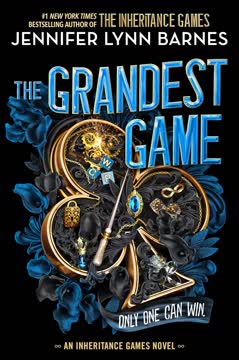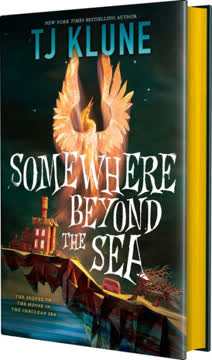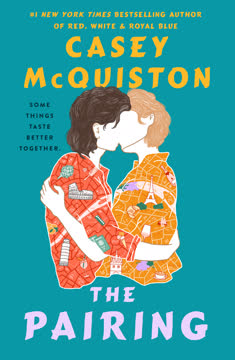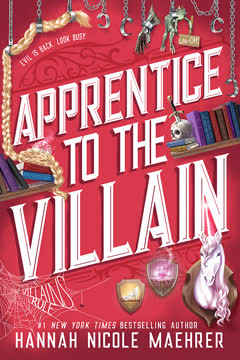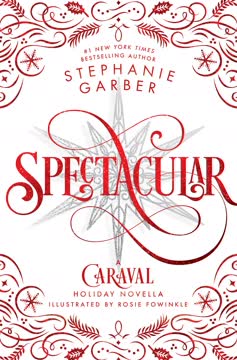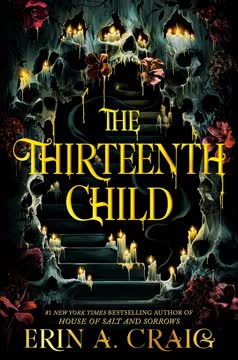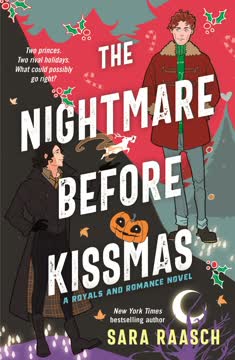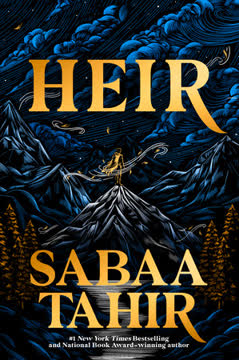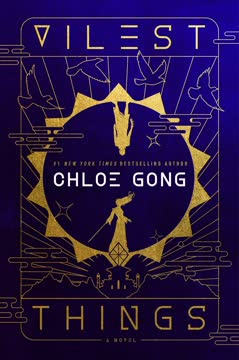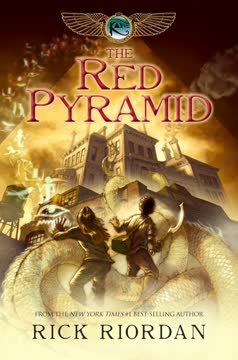Plot Summary
Autumn's Illusion of Normalcy
Percy, now a high school senior, relishes a rare stretch of normalcy in New York—no monsters, no gods, just homework and college applications. But the calm is a mirage. He's behind on credits, needs two more godly recommendation letters for New Rome University, and is haunted by the sense that fate is lurking. When a mysterious "aunt" arrives at school, Percy's world is upended, signaling the return of mythological chaos.
The Triple Goddess's Demand
Percy is summoned by Hecate, the formidable goddess of magic and crossroads, who reveals she's been keeping other gods away so he can undertake her quest. The task? Pet-sit her hellhound and polecat during Halloween week, a sacred time for her. The stakes: success earns a recommendation letter; failure means incineration. Hecate's triple form and cryptic warnings set the tone for a week of supernatural peril.
Pet-Sitting for Hecate
Joined by Annabeth and Grover, Percy enters Hecate's eerie Gramercy Park mansion. The house is a labyrinth of magical hazards, haunted décor, and bizarre rules. Hecate's pets—Hecuba the hellhound and Gale the polecat—are more monstrous than cuddly. The trio must navigate feeding routines, enchanted leashes, and the threat of magical mishaps, all while balancing school and the looming deadline.
Hellhound and Polecat Mayhem
Despite their best efforts, the demigods are outmatched by the pets' supernatural antics. Hecuba's walks turn into citywide sprints, while Gale's carnivorous habits and toxic flatulence wreak havoc. The pets' restlessness hints at deeper issues—both were once human, transformed by Hecate's complicated mercy. The mansion's history as a failed school for magic lingers, and the pets' behavior grows increasingly erratic.
Haunted House, Haunted Past
Percy uncovers the mansion's tragic past: once a school for young witches, it was closed after a mysterious disaster. Ghostly apparitions and relics—like a child's broken glasses—hint at unresolved regrets. The house itself is deteriorating, its magic unraveling. Percy's mother, Sally, reveals she once encountered Hecate as a child, a memory tinged with both fear and missed opportunity.
The Strawberry Catastrophe
Left alone, Grover succumbs to the temptation of Hecate's forbidden strawberry potion, transforming into a giant, rampaging satyr. The resulting destruction wrecks the mansion and, worse, allows Hecuba and Gale to escape into the city. Guilt-ridden, Grover's crisis mirrors the mansion's own unraveling. The trio must now recover the pets before Hecate's return, or face her wrath.
Pets on the Loose
Percy, Annabeth, and Grover split up to track the missing pets. Percy enlists Mrs. O'Leary, his old hellhound friend, and instead finds an abandoned hellhound puppy, "Nope." Annabeth and Grover's search leads them through haunted parks and Greek neighborhoods, confronting undead Trojans and the pets' own tragic histories. The city becomes a battleground of myth and memory.
Ghosts of Gramercy Park
The search for Hecuba and Gale is haunted by literal and figurative ghosts. Percy's visions reveal the pain of loss and transformation that shaped Hecate's pets. The mansion's spectral history—failed students, broken dreams—echoes in every room. The demigods realize that to restore order, they must confront not just runaway monsters, but the unresolved grief and guilt embedded in the house itself.
Allies, Eels, and Eccentricities
The trio's efforts are aided (and complicated) by magical allies: talking door knockers, sarcastic moray eels, and the ever-resourceful Mrs. O'Leary. Annabeth's architectural insight and Grover's connection to nature prove vital. Yet, every solution brings new problems—magical perfumes, enchanted food, and the ever-present risk of being transformed into something monstrous themselves.
The Perfume Witch Conspiracy
Gale is discovered enslaved by four vengeful naiads—former handmaidens of Circe—who run rival perfume shops. Each sister wields dangerous potions and old grudges against Percy and Annabeth. The demigods must outwit the witches, survive magical attacks (including a curse that turns Annabeth into an owl and Percy into an octopus), and free Gale, whose own agency and brilliance are finally recognized.
The Curse of Beast-Breath
Cursed by the witches' "beast-breath," the trio is transformed into animal forms, testing their trust and adaptability. With Gale's help, they concoct a risky antidote, but there's only enough for three. Gale chooses to remain a polecat, embracing her identity. The experience deepens the group's empathy for Hecate's pets and for each other, highlighting the power of choice and self-acceptance.
Summoning the Dead
With the pets recovered but the mansion still in ruins, the demigods face their final challenge: repairing the house before Hecate's return. Annabeth and Percy use Hecate's torches to summon an army of ghosts, including the vengeful spirit of Peter Stuyvesant, Hecate's own son. The dead are unruly, fueled by centuries of resentment and unfinished business. The ritual tests Annabeth and Percy's partnership to its limits.
Haunted House Reborn
Annabeth and Percy, nearly consumed by the ghosts, combine their strength—literally and figuratively—to command the spirits. The mansion is restored, but the ghosts' rage threatens to destroy everything. Only by working together, and with the help of their friends (and a timely intervention by demigod party crashers), do they banish the spirits and save the house. The ordeal exposes the deeper wounds at the heart of Hecate's legacy.
Facing Hecate's Judgment
Hecate returns, expecting perfection. Percy confesses their failures and the truth about the pets' needs. He advocates for Hecuba's freedom and Gale's right to her own lab, challenging Hecate to break the cycle of control and regret. Moved by their honesty and growth, Hecate grants Percy his recommendation letter and, more importantly, agrees to reopen her school for magic, with Eudora as admissions director.
The School of Second Chances
The mansion's restoration is more than physical—it's a healing of old wounds. Hecate's school will welcome a new generation of magical misfits, offering the guidance and empathy once denied. Eudora, redeemed and joyful, finds her purpose again. The pets, now family, thrive in their newfound freedom. The demigods' journey has transformed not just a house, but a legacy.
Roots, Choices, and Family
Percy, Annabeth, and Grover return to their own lives, changed by the week's trials. Family dinner at the Jackson-Blofis home becomes a celebration of roots and chosen family. Juniper's wisdom reminds them that home is where you're planted, and that growth means embracing change. Percy's final lesson: true heroism is not just about fighting monsters, but about leaving the world—and the people in it—better than you found them.
Characters
Percy Jackson
Percy, son of Poseidon, is older, wiser, and more self-aware, but still struggles with self-doubt, ADHD, and the weight of expectations. His journey is one of responsibility—balancing school, relationships, and the demands of gods. Percy's empathy and willingness to admit mistakes are his greatest strengths. He acts as the emotional center, connecting the magical and mortal worlds, and ultimately challenges Hecate to break her own cycles of regret.
Annabeth Chase
Annabeth, daughter of Athena, is Percy's partner in every sense. Her intelligence, pride, and drive to fix things are both her strength and flaw. She's haunted by the past—her own and the mansion's—and must learn to accept help and vulnerability. Annabeth's vision and leadership are crucial in restoring the mansion and guiding the ghosts, but it's her partnership with Percy that saves them both.
Grover Underwood
Grover, the satyr, is both the heart and the humor of the group. His guilt over the strawberry catastrophe mirrors his fear of being left behind as his friends move on. Grover's connection to nature and animals is vital, and his willingness to risk himself for others is quietly heroic. His journey is about self-acceptance and trusting that he will always have a place in his friends' lives.
Hecate
Hecate is powerful, intimidating, and deeply wounded by her past failures—especially the collapse of her school and the loss of her son. She embodies the theme of choices and their consequences, often offering crossroads with no easy answers. Her relationship with her pets is both controlling and loving, reflecting her struggle to let go. Ultimately, Hecate's growth comes from listening to those she once dismissed.
Hecuba
Once the queen of Troy, Hecuba's transformation into a hellhound is both a curse and a mercy. She is fierce, loyal, and haunted by loss. Her journey mirrors the mansion's—restless, misunderstood, and in need of healing. Through her bond with Percy and the adoption of Nope, Hecuba finds a new pack and a measure of peace.
Gale
Gale, once a mortal witch, is brilliant, irascible, and underestimated. Her transformation is a commentary on the fate of powerful women in myth. Enslaved by the perfume witches, she reclaims her agency with Percy's help, choosing to remain a polecat and demanding respect for her talents. Gale's story is one of self-acceptance and the right to define one's own destiny.
Nope
Abandoned and vulnerable, Nope is adopted by Hecuba and quickly becomes the group's mascot. His innocence and resilience symbolize hope and the possibility of healing old wounds through new connections.
Eudora
Eudora, once Hecate's admissions director, is paralyzed by guilt over the school's failure. Her journey is one of redemption—helping Percy, facing her past, and ultimately reclaiming her role in the new school. Eudora represents the importance of empathy and second chances.
Peter Stuyvesant
The spirit of Stuyvesant, Hecate's son, embodies the mansion's haunted legacy. His rage and inability to let go threaten to destroy everything, forcing the demigods to confront the dangers of clinging to the past.
Sally Jackson
Sally's brief but pivotal appearances ground the story in love and perspective. Her own encounter with Hecate as a child shapes Percy's understanding of regret and the importance of making peace with one's choices.
Plot Devices
The Crossroads Motif
The narrative is structured around literal and metaphorical crossroads—Hecate's specialty. Characters are repeatedly forced to choose between easy, tempting paths and harder, more honest ones. The motif underscores the book's central theme: growth comes from facing difficult truths and making courageous decisions, even when all options seem flawed.
Magical Realism and Urban Fantasy
Riordan's signature style places ancient magic in contemporary New York, using the city's geography and culture as both setting and metaphor. The haunted mansion, magical pets, and supernatural mishaps are grounded in relatable struggles—school, friendship, family, and the fear of being left behind.
Haunted House as Metaphor
The deteriorating manse is more than a backdrop; it's a living symbol of unresolved grief, regret, and the consequences of neglecting the past. Its restoration requires not just physical repair, but emotional reckoning and the healing of relationships.
Transformation and Identity
The "beast-breath" curse and other magical mishaps force characters to inhabit new forms, deepening empathy and self-understanding. Gale's choice to remain a polecat, and Hecuba's journey from vengeance to acceptance, highlight the power of embracing one's true self.
Ghosts and Regret
The summoning of ghosts literalizes the weight of history and the dangers of unresolved trauma. Only by confronting and releasing these spirits—both personal and collective—can the characters move forward.
Found Family and Chosen Roots
The story's emotional core is the bond between Percy, Annabeth, Grover, and their extended family. The final scenes emphasize that roots are not just inherited, but cultivated through love, honesty, and shared struggle.
Analysis
is a witty, heartfelt meditation on the burdens of legacy, the pain of regret, and the redemptive power of choice. Rick Riordan uses the familiar humor and adventure of the Percy Jackson universe to explore deeper themes: the difficulty of letting go, the courage to face one's failures, and the necessity of empathy in leadership. The haunted mansion is both a literal and figurative crossroads, forcing characters to confront the ghosts of their past—be they personal, familial, or societal. The book's greatest lesson is that true heroism lies not in perfection, but in the willingness to admit mistakes, seek forgiveness, and build something better together. In a world obsessed with achievement and moving forward, Riordan reminds us that healing the past is essential to creating a future worth living in.
Last updated:
FAQ
Synopsis & Basic Details
What is Wrath of the Triple Goddess about?
- Senior Year Quest: Percy Jackson, a high school senior, seeks two more godly recommendation letters for New Rome University, but his quiet life is disrupted when Hecate, the goddess of magic and crossroads, demands he pet-sit her monstrous hellhound and polecat during Halloween week.
- Mansion Mayhem: Joined by Annabeth and Grover, Percy navigates Hecate's eerie Gramercy Park mansion, which is filled with magical hazards and a deteriorating structure, while struggling to control the unruly pets and balance his schoolwork.
- Unraveling Past: The trio uncovers the mansion's haunted history as a failed magic school, leading them to confront vengeful naiads, an accidental transformation, and a desperate plan to summon ghosts to repair the house before Hecate's return.
Why should I read Wrath of the Triple Goddess?
- Deeper Character Growth: Experience Percy Jackson's continued evolution as he grapples with self-doubt, leadership, and the emotional complexities of his friends and even his divine adversaries, offering a more mature perspective on his heroic journey.
- Mythology Meets Modernity: Enjoy Rick Riordan's signature blend of ancient Greek mythology seamlessly integrated into contemporary New York City, featuring talking door knockers, hellhounds on leashes, and perfume-selling nymphs, creating a uniquely humorous and action-packed urban fantasy.
- Themes of Healing: Delve into profound themes of regret, forgiveness, and the power of second chances, as the characters not only battle monsters but also help a goddess confront her past failures and rebuild a legacy of hope and acceptance.
What is the background of Wrath of the Triple Goddess?
- Halloween's Mythological Roots: The story is set during Halloween week, a time Hecate claims as her own, drawing on ancient traditions of appeasing spirits and the veil between worlds thinning, which becomes central to the plot's climax involving ghost summoning.
- New York City's Hidden Layers: The narrative leverages specific NYC locations like Gramercy Park, Astoria, and the Bowery, imbuing them with mythological significance and hidden magical properties, such as Hecate's mansion blending into its surroundings or the Greek enclaves of Astoria.
- Interconnected Mythological Universe: The book builds upon established lore from the Percy Jackson and Heroes of Olympus series, referencing past events like Circe's Island, the Battle of Manhattan, and characters like Mrs. O'Leary, enriching the world for long-time fans while introducing new facets of Greek mythology.
What are the most memorable quotes in Wrath of the Triple Goddess?
- "The theme is free will versus fate.": Percy's initial, almost accidental, answer in English class (Chapter 1) becomes a recurring philosophical undercurrent, highlighting his constant struggle against predetermined destinies and the choices he makes.
- "Nothing on earth is worth losing my best friend.": Percy's heartfelt declaration to Grover (Chapter 13) after learning about the satyr's self-sacrificing "grounding" magic, emphasizing the profound bond of friendship and chosen family over any quest or personal ambition.
- "We're stronger together. Always.": Percy's rallying cry to Annabeth (Chapter 32) as they face the overwhelming ghost army, encapsulating the core theme of partnership, mutual support, and how their combined strengths overcome individual flaws and impossible odds.
What writing style, narrative choices, and literary techniques does Rick Riordan use?
- First-Person Humorous Narration: Riordan employs Percy Jackson's distinctive first-person point of view, characterized by a witty, self-deprecating, and often sarcastic tone, which makes even the most perilous situations relatable and entertaining, as seen when Percy thinks, "I have a way with words." (Chapter 1).
- Urban Fantasy Blending: The narrative seamlessly integrates ancient Greek mythology into a modern urban setting, using the Mist to explain mortal obliviousness and creating a world where gods use business cards and hellhounds go on walks through Manhattan, grounding the fantastical in the mundane.
- Thematic Foreshadowing & Symbolism: Riordan subtly weaves in thematic elements and foreshadowing, such as Hecate's triple forms symbolizing choices and crossroads, the deteriorating mansion reflecting unresolved grief, and recurring motifs like "What Could Have Been" (Chapter 29) hinting at deeper historical regrets.
Hidden Details & Subtle Connections
What are some minor details that add significant meaning?
- Eudora's Fearful Avoidance: Percy's Nereid guidance counselor, Eudora, is unusually terrified of Hecate, hiding in a janitor's closet and later revealing she "may have, ah, suggested you... For Hecate's task" (Chapter 38), hinting at a deeper, guilt-ridden past connection to Hecate's school and its failure.
- Door Knockers' Randomness: The three animal-headed door knockers, initially presented as a riddle ("One of us always speaks the truth! One of us always lies! And one of us always says something completely random! RUTABAGA!") (Chapter 4), subtly foreshadow the chaotic and unpredictable nature of Hecate's magic and the challenges the trio will face.
- Hecate's Candy Corn: The goddess's peculiar fondness for candy corn, which she "always travel[s] with" (Chapter 18), is a seemingly trivial detail that later becomes Percy's nectar flavor, symbolizing Hecate's unexpected, almost childish, vulnerabilities and the comfort she seeks amidst her formidable power.
What are some subtle foreshadowing and callbacks?
- Percy's "Free Will vs. Fate": Percy's initial, almost random, answer in English class, "The theme is free will versus fate" (Chapter 1), subtly foreshadows the central conflict of the quest, where characters are constantly presented with choices that challenge their perceived destinies and Hecate's own "crossroads" philosophy.
- Hecuba's "School" Mention: When Hecuba barks about the door knockers not working "since the school closed down" (Chapter 4), it's a quick, seemingly throwaway line that subtly hints at the mansion's past as Hecate's magic school, a crucial piece of lore that Percy and Annabeth later uncover.
- "What Could Have Been" Plaque: The display in Hecate's library featuring broken children's eyeglasses and a plaque engraved "WHAT COULD HAVE BEEN" (Chapter 29) is a poignant foreshadowing of the tragic history of Hecate's school and the lost potential of its students, particularly Sally Estelle Jackson (SEJ).
What are some unexpected character connections?
- Peter Stuyvesant as Hecate's Son: The revelation that the vengeful ghost of Peter Stuyvesant is Hecate's son ("My mother must pay for her pagan crimes," Chapter 34) is a shocking twist, deepening Hecate's character by revealing a personal, painful history of failed parenting and unresolved family conflict.
- Eudora's Role in Hecate's Past: Eudora, Percy's Nereid guidance counselor, is revealed to have been Hecate's admissions director for her magic school in 1914 (Chapter 38), explaining her fear and guilt, and establishing a long-standing, complicated relationship rooted in shared failure and regret.
- The Naiads as Circe's Handmaidens: The four perfume-selling naiad sisters (Filomena, Silbe, Daedra, Phaedra) are identified as Circe's former handmaidens from Aeaea (Chapter 22), connecting their grudge against Percy and Annabeth to past adventures and highlighting the long-lasting consequences of demigod actions.
Who are the most significant supporting characters?
- Eudora, the Guilt-Ridden Nereid: Beyond her role as Percy's counselor, Eudora is significant as a direct link to Hecate's past, embodying the theme of regret and the desire for redemption, ultimately becoming the key to Hecate's decision to reopen her school.
- Peter Stuyvesant, the Vengeful Son: Stuyvesant's ghost is more than just an antagonist; he represents Hecate's deepest regret—a failed attempt at family and a legacy of bitterness. His presence forces Hecate to confront her past and the consequences of her choices.
- The Aeaean Naiads, Echoes of Past Conflicts: Filomena, Silbe, Daedra, and Phaedra are significant not just as obstacles but as reflections of Percy and Annabeth's past actions (destroying Circe's island) and Hecate's own exclusionary tendencies, showing how grudges can fester and lead to destructive competition.
Psychological, Emotional, & Relational Analysis
What are some unspoken motivations of the characters?
- Grover's Fear of Abandonment: Grover's subconscious motivation for sabotaging the mansion with the strawberry potion (Chapter 13) is his deep-seated fear of Percy and Annabeth leaving for college and him being "left behind," revealing his emotional vulnerability and dependence on their friendship.
- Hecate's Desire for Validation: Hecate's elaborate quest and her initial "test" of Percy (Chapter 1) subtly reveal her underlying desire for respect and validation, stemming from her past failures and the perceived decline of her influence, making her vulnerable to Percy's honest confrontation.
- Annabeth's Need for Control: Annabeth's "fatal flaw" of hubris (Chapter 37) manifests as a deep-seated need to control situations and solve problems herself, which is subtly challenged when she admits she "made a mistake" (Chapter 32) and must rely on Percy and the others.
What psychological complexities do the characters exhibit?
- Percy's Empathy and Guilt: Percy, despite his ADHD and occasional cluelessness, exhibits profound empathy, particularly when connecting with Hecuba's grief (Chapter 25) and Gale's past (Chapter 30), and struggles with guilt over leaving Grover alone, showcasing his emotional maturity and growth.
- Grover's Self-Sabotage and Insecurity: Grover's transformation into a giant satyr due to the strawberry potion is a manifestation of his internal conflict and insecurity about his place in the trio's future, highlighting the psychological impact of impending change on his character.
- Hecate's Wounded Pride: Hecate's character is complex, driven by wounded pride and regret over her failed magic school and her son, Peter Stuyvesant. Her initial harshness and "tests" are a defense mechanism, masking a deep-seated pain that Percy's honesty eventually uncovers.
What are the major emotional turning points?
- Grover's Confession of Fear: Grover's tearful confession to Percy about his fear of being left behind (Chapter 13) is a major emotional turning point, shifting Percy's anger to empathy and deepening their friendship, emphasizing the importance of open communication.
- Percy's Empathic Connection with Hecuba: During the fight with the undead Trojans, Percy experiences Hecuba's grief and rage firsthand (Chapter 25), transforming his perception of her from a monstrous pet to a deeply wounded being, leading to a breakthrough in their relationship.
- Gale's Choice to Remain a Polecat: Gale's decision to take the antidote but remain a polecat (Chapter 31) is a powerful emotional turning point, symbolizing self-acceptance and agency, and challenging the notion that transformation is always a curse, highlighting her embrace of her true identity.
How do relationship dynamics evolve?
- Percy and Annabeth's Interdependence: Their relationship evolves from a strong partnership to one of profound interdependence, especially when they literally combine their strength to wield Hecate's torches (Chapter 32), demonstrating that their individual flaws are balanced by their shared trust and unity.
- Grover's Trust and Vulnerability: Grover's relationship with Percy deepens as he overcomes his shame and confesses his insecurities, allowing Percy to offer genuine support and reaffirm their unbreakable bond, moving past the "protector" dynamic to one of mutual care.
- Hecate's Shifting Bonds with Pets: Hecate's relationship with Hecuba and Gale transforms from one of controlling ownership to a more respectful, familial bond. Percy's advocacy for their freedom and agency (Chapter 35) forces Hecate to acknowledge their needs and her own emotional connection to them.
Interpretation & Debate
Which parts of the story remain ambiguous or open-ended?
- The Future of Hecate's School: While Hecate agrees to reopen her magic school (Chapter 39), the long-term success and challenges of this new endeavor remain open-ended, leaving readers to ponder how Hecate will manage it differently and if she can truly overcome her past failures.
- The Naiads' Ultimate Fate: The perfume-selling naiads are left gift-wrapped and paralyzed (Chapter 27), but their ultimate fate and whether they will seek further revenge or find a new path are left unresolved, hinting at potential future conflicts or character development.
- The Full Extent of Hecate's "Test": It's ambiguous how much of the chaos was a deliberate "test" by Hecate versus genuine mishaps. Percy suspects she "meant for it to happen" (Chapter 35), but the goddess never fully confirms her intentions, leaving her motivations partially open to interpretation.
What are some debatable, controversial scenes or moments in Wrath of the Triple Goddess?
- Hecate's "Pity" and Transformation: The scene where Hecate transforms Gale into a polecat out of "pity" (Chapter 30) is debatable. While presented as a form of salvation, it raises questions about divine agency, the ethics of forced transformation, and whether Hecate's "mercy" was truly benevolent or a manifestation of her own limitations and fears.
- The Ethics of Ghost Labor: The decision to summon and command ghosts, including Peter Stuyvesant, to repair the mansion (Chapter 32) can be seen as controversial. It raises questions about exploiting the dead for personal gain and the morality of forcing spirits to perform labor against their will, even if for a "good" cause.
- Peter Stuyvesant's "Mother": The revelation that Peter Stuyvesant is Hecate's son and his intense rage towards her ("My mother must pay for her pagan crimes," Chapter 34) sparks debate about the nature of divine parentage and the profound, often destructive, impact of godly relationships on their mortal or demigod children.
Wrath of the Triple Goddess Ending Explained: How It Ends & What It Means
- Confrontation and Confession: The story culminates with Percy's courageous confession to Hecate about the week's chaos, refusing to lie or take the easy path (Chapter 35). This act of honesty, rather than fear, disarms the goddess and forces her to confront her own past failures and the true needs of her pets.
- Rebirth of the Magic School: Hecate, moved by Percy's truth and the bond he forged with her pets, agrees to reopen her magic school and rehire Eudora (Chapter 39). This signifies a symbolic rebirth, not just of the mansion, but of Hecate's legacy, transforming it from a place of regret into a "School of Second Chances" (Chapter 15, summary).
- Chosen Family and Enduring Roots: The final scenes emphasize the theme of "found family and chosen roots" (Analysis), as Percy, Annabeth, and Grover celebrate their enduring bonds and the idea that "home is where you're planted" (Chapter 39). The ending suggests that true heroism lies in nurturing relationships and leaving people and places "better than you found them" (Chapter 39), rather than just completing quests.
Review Summary
Wrath of the Triple Goddess receives mixed reviews. Many fans enjoy the nostalgia and humor, praising the return of beloved characters. However, some criticize the low stakes, characterization issues, and continuity errors. The book is seen as lightweight compared to earlier series, with opinions split on whether this works. Some appreciate the focus on character relationships, while others feel it lacks depth. Despite criticisms, many readers express excitement for more Percy Jackson content and find comfort in returning to the Riordanverse.
Camp Half-Blood Chronicles Series
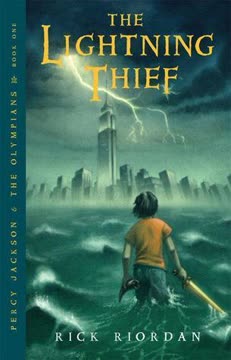
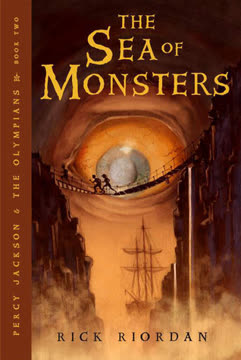
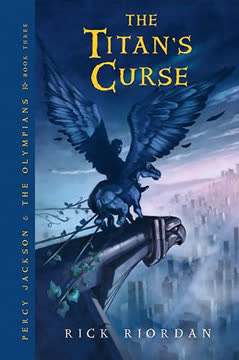
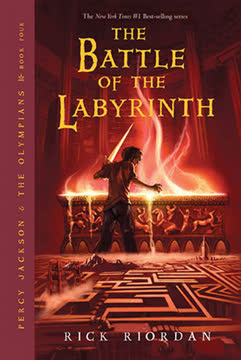
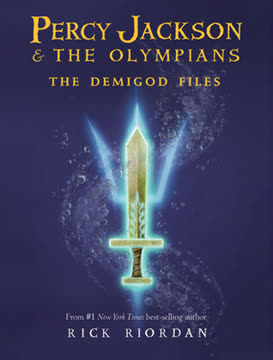
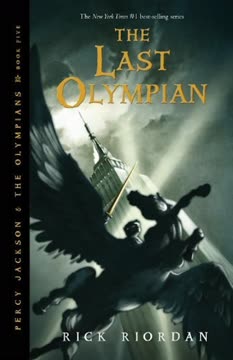
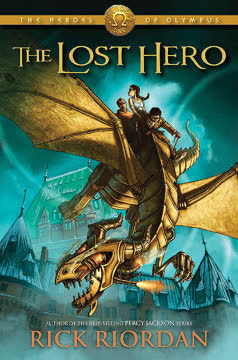
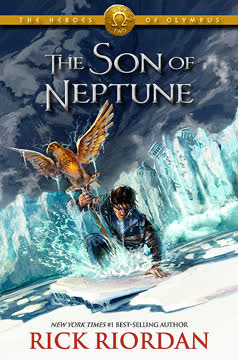
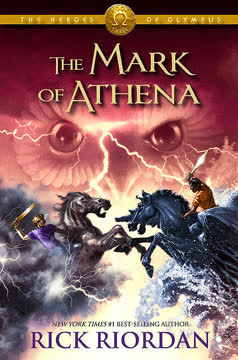
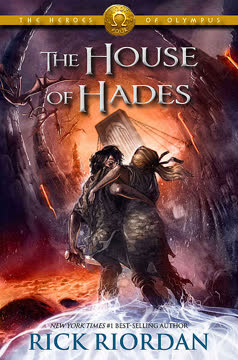
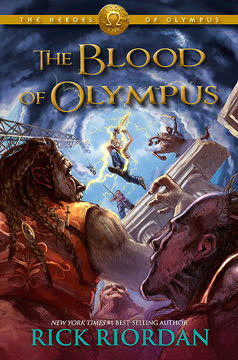
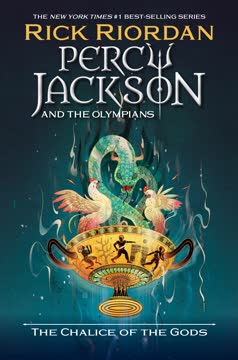
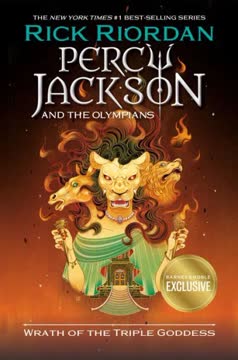
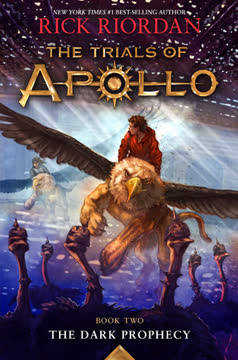
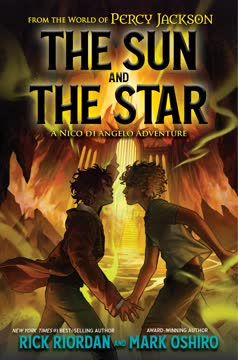
Similar Books
Download PDF
Download EPUB
.epub digital book format is ideal for reading ebooks on phones, tablets, and e-readers.
